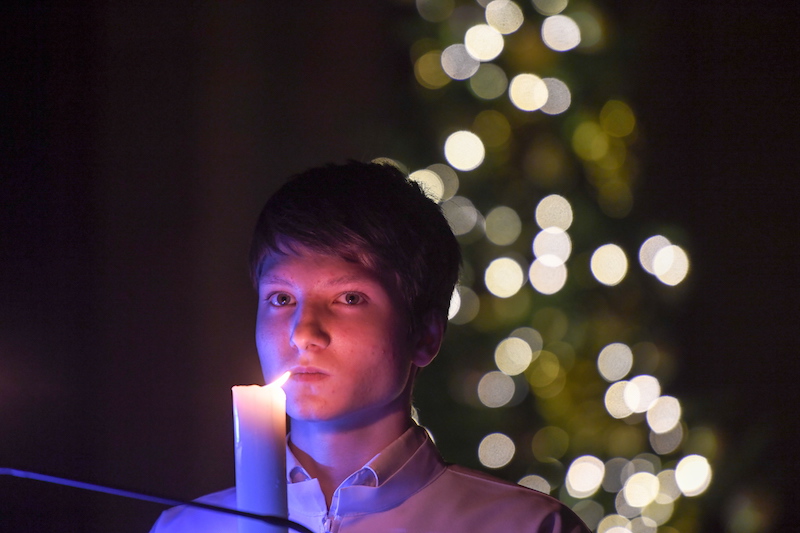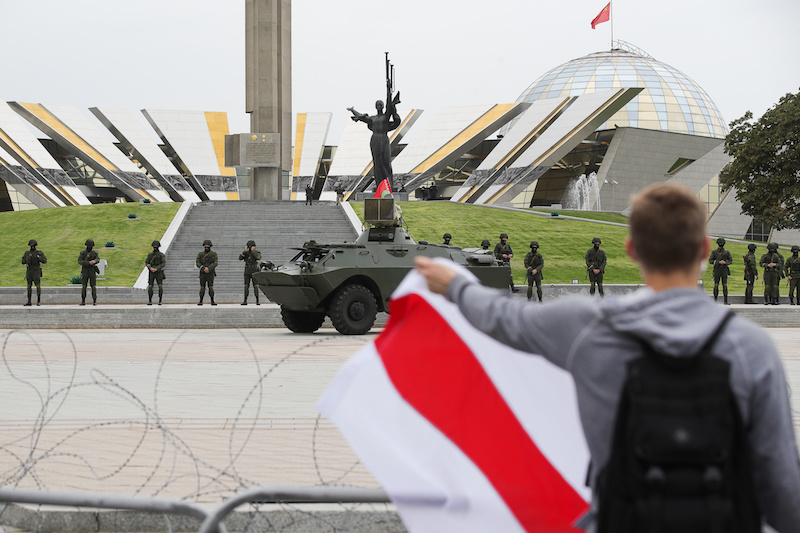Catholic aid organisations have warned of worsening economic and social conditions in Belarus, amid accusations that the regime of President Alexander Lukashenko is restricting humanitarian supplies in a bid to contain mass protests against his resumption of power.
"It is becoming more and more difficult for humanitarian aid workers to bring aid into the country - goods are strictly controlled and every truckload box opened, constantly increasing the bureaucratic burden facing aid deliveries", said Michael Daemen, a director of Germany's Maltese Relief Service. "This amounts to a de facto blockade. Even people in the border region with Poland are forbidden to bring food into Belarus with them. If the border is closed completely, a catastrophe can be expected this winter".
The statement was issued amid continuing protests against Lukashenko's declared sixth election victory on 9 August, which has been rejected as rigged by opposition activists and Western governments. It said aid workers were facing growing obstacles in attempting to distribute food, coronavirus protective equipment and school supplies for needy children, as more Belarusans were left unemployed and wageless by strikes and economic collapse.
Meanwhile, the Belarusan church's Caritas organisation said many citizens felt an "intolerable pain" at seeing "innocent people condemned and tortured" for seeking "truth and justice", and urged Catholics everywhere to stand "in solidarity with the victims".
"The mission of Caritas is to come to the aid of everyone who needs it, to give hope where it seems lost and show the spirit of love", the charity's director, Fr Vitaliy Dobrolovich, said in a message. "Caritas-Belarus calls at this difficult time for our country to unite in prayer for all victims of peaceful protests, for a calm resolution of the conflict in Belarus and an end to violence in our native land".
Hooded security forces, using teargas and stun grenades, grabbed and detained dozens as demonstrators marched through Minsk and other towns on Sunday for the seventh consecutive week, demanding the departure of Lukashenko, who was reinaugurated at a private ceremony on 23 September after 26 years in power.
Addressing the virtual UN General Assembly on Saturday, Belarus' Foreign Minister, Vladimir Makei, warned Western countries against interfering or imposing sanctions over the violent crackdown. However, in a message to Catholics at Vitebsk, the country's exiled Bishops Conference president, Archbishop Tadeusz Kondrusiewicz, said efforts by "various political and social forces to solve the crisis in their own way" had not worked, and urged Christians to help "renew society" through "spiritual change".
Meanwhile, the Vatican's representative at the United Nations warned that tensions would only be relieved through "sincere dialogue, denial of violence, respect for justice and rights", and said he hoped a mid-September Minsk visit by Archbishop Paul Gallagher, the Vatican's Secretary for Relations with States, had promoted a "deeper understanding of the ecclesial mission of the Church and the role it plays in promoting social reconciliation and national cohesion".
"In the search for a peaceful solution to the current crisis, the Holy See considers it necessary for demonstrators to express their demands peacefully", Archbishop Ivan Jurkovic told a UN Human Rights Council session in Geneva. "It is also necessary for the authorities to show restraint, listen to the voice of their citizens and remain open to their just demands".
The news website of Belarus's Catholic Church, which makes up around a tenth of Belarus's 9.4 million citizens, said prayers had been recited "for an end to the persecution of the Catholic Church" during the month-long nationwide peregrination of a figure of St Michael the Archangel, which ended in Minsk's Catholic cathedral on Tuesday.
It also carried at letter from the director-general of Belarus's state radio, defending the sudden, unexplained ending of a long-running weekly broadcast of the Catholic Mass. Germany's Bishops’ Conference became the latest last week to demand the reinstatement of Archbishop Kondrusiewicz, who was barred from returning from neighbouring Poland on 31 August, despite holding Belarusan citizenship.



 Loading ...
Loading ...